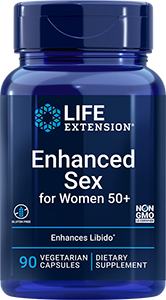Mayo Clinic study finds GLA inhibits pancreatic cancer cell growth Friday, April 6, 2012. The results of a study reported by Mayo Clinic pathologist Ruth Lupu, PhD at the American Association for Cancer Research Annual Meeting 2012, held in Chicago from March 31 to April 4, revealed a protective effect for gamma-linolenic acid (GLA), an omega-6 fatty acid that is available as a dietary supplement, against the growth of one type of pancreatic cancer. "One of the most devastating facts about pancreatic cancer is the paucity of effective drugs that exist to halt a tumor," Dr Lupu commented. "We knew from studies done about 20 years ago that polyunsaturated fatty acids such as GLA could influence cancers in general, but we didn't know which type of fatty acids and to what degree." Dr Lupu's team initially evaluated the effects of GLA in a number of cultured pancreatic cancer cell lines and discovered an inhibitory effect in a subtype that expresses a gene for fatty acid synthase. In earlier research, the team showed that fatty acid synthase is highly expressed in pancreatic adenocarcinomas and may be a marker of poor survival. "This was very exciting finding, because we realized that GLA was working selectively and had a particular target within cells," Dr Lupu remarked. When GLA was tested in cells with high fatty acid synthase levels, 85 percent of cancer cell growth was inhibited, which is a significant improvement over gemcitabine, the standard chemotherapy for pancreatic cancer which provides only a modest benefit. When the two compounds were combined, the researchers observed complete inhibition of pancreatic cancer cell growth. The combination was also demonstrated to significantly inhibit pancreatic cancer growth in mice. "The two treatments worked synergistically, and we achieved a significantly higher inhibition of cell growth and higher incidence of dead pancreatic carcinoma cells," Dr Lupu stated. "We don't yet know why the combination works better, but we know that many drugs work better when used together." Dr Lupu plans to test the combination of GLA in gemcitabine in humans with cancer of the pancreas. "Since resistance to gemcitabine and other chemotherapy drugs can be an issue in treatment, we hope GLA will work in combination with other chemotherapy drugs to offer patients a wide range of treatment opportunities," she said. |
 |  | | A report published online on December 20, 2011 in the journal Gut revealed a protective effect for increased levels of selenium and nickel against the development of exocrine pancreatic cancer—the most common pancreatic malignancy. A team from the Spanish National Cancer Research Center and the University of Barcelona conducted a case-control study involving 118 men and women diagnosed with exocrine pancreatic cancer and 399 cancer-free control subjects residing in Spain. Toenail samples were analyzed for arsenic, cadmium, lead, nickel, selenium and other trace elements. Having a high level of arsenic was associated with double the adjusted risk of exocrine pancreatic cancer than the risk experienced by those with a low level, and having high levels of cadmium and lead were associated with a 3.5 and six times greater risk. Subjects with a high level of selenium had a 95 percent lower risk of the disease, and those with high levels of nickel had a 73 percent decrease. While protective benefits for selenium have been indicated by numerous studies, occupational exposure to nickel has been associated with an increased risk of some cancers, however, the researchers remark that nickel may be associated with higher amounts of potentially carcinogenic polychlorinated biphenyls in occupational settings, which could account for the elevated cancer risk. "Aberrant expression patterns of some selenoproteins show that they are relevant in scavenging reactive oxygen species and diminishing oxidative damage," Andre F. S. Amaral and his colleagues write. "Selenium seems also to play a role as an antagonist of arsenic, cadmium and lead, decreasing the oxidative stress caused by exposure to these elements." They conclude that the findings point to a role of trace elements in the development of cancer of the pancreas and warrant further research. | 
- On the cover:
- Reports:
- Departments:
- Journal abstracts:
| |

|  | Advanced Natural Sex for Women®
Item #01627 |  | | Advanced Natural Sex for Women® introduces a unique phyto blend that targets and supports the mechanisms that promote healthy sexual function and libido: Cordyceps: Mushroom extract modulates sex hormone levels and promotes their downstream flow; boosts mitochondrial energy and sex interest by increasing adenosine triphosphate (ATP) production, supports vaginal lubrication and sexual function by promoting nitric oxide, and inhibits pro-inflammatory cytokines that can dampen sexual desire. In placebo-controlled studies, scientists documented that cordyceps improved sexual function and desire in 86% of women—in 40 days! Lepidium meyenii (maca): Cultivated for over 2,000 years, this plant root extract has now been shown to modulate levels and flow of sex hormones, support adrenal function and promote libido and sexual pleasure by helping to optimize brain neurotransmitters and monoamine oxidase (MAO) levels. | |  | | Menopausal transition is considered the most difficult time for a woman to remain sexually active. In addition to the hot flashes and fatigue, vaginal dryness and loss of libido often interfere with sexual function. Advanced Natural Sex for Women® 50+ contains cordyceps and maca plus three herbal root extracts used for over 400 years in Korea to help inhibit symptoms of menopause: - Phlomis unbrosa
- Cynanchum wilfordii
- Angelica gigas
Scientists found that when these three botanicals are uniquely blended and hot water extracted, they balance estrogenic activity in only those target tissues specifically related to menopausal symptoms. In a double-blinded, placebo-controlled study, this formulation (EstroG-100™) helped inhibit menopausal symptoms by 62% in just 12 weeks. | | |













